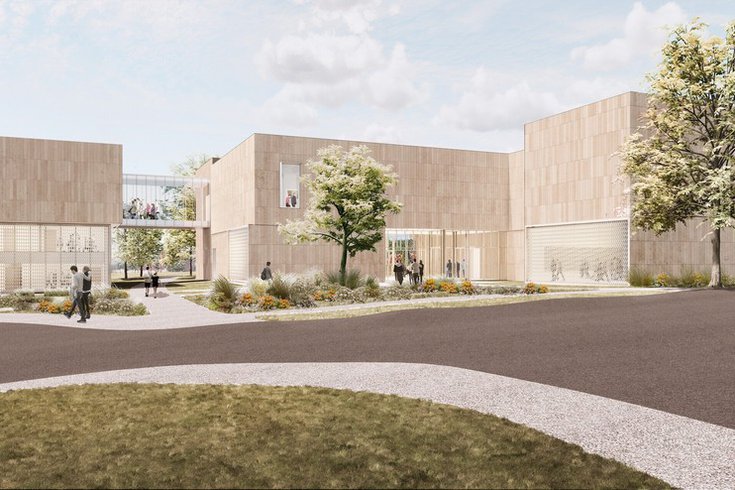
May 08, 2021
 Courtesy/ALLIED WORKS ARCHITECTURE
Courtesy/ALLIED WORKS ARCHITECTURE
Penn State's new Palmer Museum of Art will house more than 10,000 works in the university's growing collection. The $85 million project is slated for completion in 2023.
The Penn State University Board of Trustees has given a green light to embark on the construction of the new Palmer Museum of Art, an $85 million facility that will replace an existing facility within the campus arboretum.
The project, supported with more than $20 million in philanthropic donations, will span 71,000 square feet and will add education spaces and teaching galleries, flexible event spaces and nearly double the exhibition space of the current museum. The building will expand student, faculty and public access to Penn State's growing collection of more than 10,000 works of art.
“The new museum will help to strengthen the Palmer’s academic collaborations with faculty and foster exciting student engagement opportunities through experiential learning, creative activities and spaces designed for innovative cross-disciplinary programs,” said Erin Coe, director of the Palmer Museum of Art.
Construction of the new museum, designed by Portland-based Allied Works Architecture, is expected to begin this summer with a projected completion date in 2023.
The project site is located along Bigler Road near the H.O. Smith Botanic Gardens and across from the Lewis Katz Building.
The building's design consists of a series of interlocking pavilions made from local stone, with indoor and outdoor courtyards offering views of the arboretum. Its features, including HVAC systems made for art preservation, will meet U.S. Green Building Council standards for Leadership in Energy and Environmental Design (LEED) certification.
Approximately 10,000 Penn State students visit the existing museum each year, including 5,000 who are engaged through education programs, tours, lectures and curriculum integration.
“As one of the largest art museums between Pittsburgh and Philadelphia and the most significant academic art museum in the state, this new facility will help to advance the Palmer as a cultural destination and scholarly resource for the University, surrounding communities, and visitors from across Pennsylvania and beyond," Coe said.